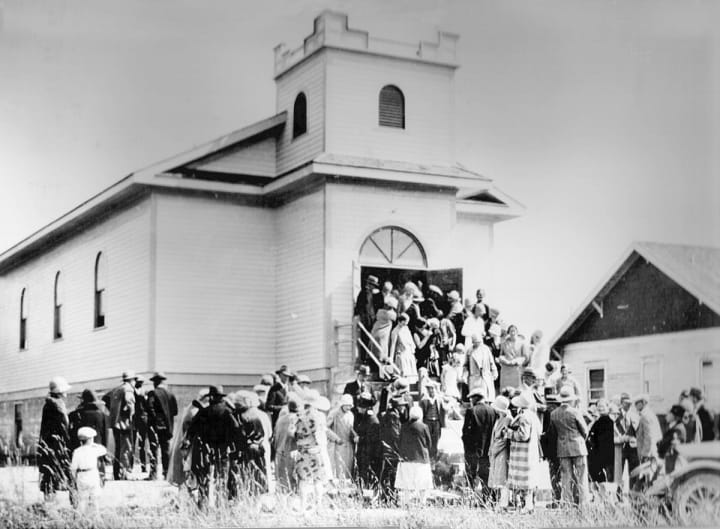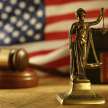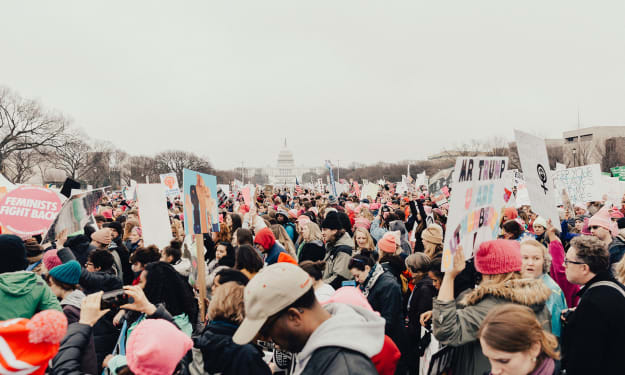The History Between Church and State
Separation between church and state is a major cornerstone of American culture...or is it?

When America's Constitution was written, a line that notes that the government will not favor one religion over another was added in. To be more specific, it was a line that stated, "Congress shall make no law respecting an establishment of religion, or prohibiting the free exercise thereof.”
Though we often take this right for granted, it's not one that much of Western Civilization had for a very long time. This is why we have this line, and why many of our laws don't seem to agree with a full separation between the two institutions.
Prior to America's birth, most of Western civilization was heavily influenced by religion.

Throughout the Dark Ages and the Middle Ages, kings were expected to remain under the control of the Catholic Church. It was only during the Renaissance that kings began to buck the authority of church officials. As the notion that other forms of Christianity could potentially be correct grew, different sects began to grow.
Despite the growth of different Christian sects, many still faced persecution and fled to the Americas so that they could practice religion as they see fit. People may already be aware of Puritans, Quakers, and Shakers - three of the most common sects to travel to America during the earliest stages of the country's development.
What most people don't realize is that one of the founders of one of the original 13 colonies also had a personal issue with the church. And, his argument against the church was one that was later picked up on.
In the early half of the 17th century, a clergyman by the name of Roger Williams wrote a book about his hope to see a limited government that believed in the separation between church and state. As a result of his "heretical" writings, Williams was exiled... and he ended up founding the state of Rhode Island.
Williams's book attracted a number of the Founding Fathers, including big names such as Thomas Jefferson, Benjamin Franklin, and James Madison.
During the Constitution's codification, the Founding Fathers made a point to include religious equality as part of the groundwork.
When the Founding Fathers wrote the constitution, they made a point to add clauses that prevented lawmakers to create laws that favored one religion over another. This clause was at least partly inspired by the book written by Roger Williams over a century earlier.
Though the phrase "separation of church and state" was used by major politicians, the Constitution itself doesn't include a mandate saying this particular phrase.
Jefferson, while penning the American Bill of Rights, had written to his friend, "Believing with you that religion is a matter which lies solely between Man and his God, that he owes account to none other for his faith or his worship, that the legitimate powers of government reach actions only, and not opinions, I contemplate with sovereign reverence that act of the whole American people which declared that their legislature should 'make no law respecting an establishment of religion, or prohibiting the free exercise thereof,' thus building a wall of separation between Church and State."
By adding "freedom of religion" to the Bill of Rights, Jefferson made it possible for people to separate church and state in legislature. Most people take this to mean that church officials cannot play a role in what American law dictates, and that people can't be punished for exercising their religious beliefs.
In modern politics, the separation of church and state has gained an alternate meaning.

Nowadays, many lawmakers are using the argument of separation of church and state to create laws that technically allow discrimination against people by virtue of their creed, race, sex, or orientation. Not everyone finds this to be legal or ethical for obvious reasons.
For example, states that mandated laws allowing churches and government officials to turn away couples seeking gay marriage explained it was unconstitutional to require people to perform acts against their religion as part of their jobs. Since gay marriage may be considered a sin in many religions, laws were created to "protect" religious rights.
Regardless of the legality or ethics, many religious groups do try to influence American politics for their own gain, or as a way to enforce their beliefs on others.
Obviously, this isn't ethical, nor is it what presidents of past years would have wanted.
America's legislature had worked tirelessly to prevent corrupt church officials from gaining a say in politics for centuries. And, yet, in 2017, we find ourselves asking what the separation of church and state really means. Perhaps, it's time to step back and look at what our past presidents have said... ?
In a stirring speech, President John F. Kennedy said, "I believe in an America that is officially neither Catholic, Protestant, nor Jewish... where no religious body seeks to impose its will directly or indirectly upon the general populace or the public acts of its officials, and where religious liberty is so indivisible that an act against one church is treated as an act against all."
Historically, America was a place where law didn't have to do with religion. However, that seems to be changing - and it's not a good change.
About the Creator
Cato Conroy
Cato Conroy is a Manhattan-based writer who yearns for a better world. He loves to write about politics, news reports, and interesting innovations that will impact the way we live.






Comments
There are no comments for this story
Be the first to respond and start the conversation.